It's Definitive: We've Reached Peak Jobs
The U.S. has reached Peak Jobs--at least the sort that can support a household.
There has long been a quasi-magical belief in the U.S. that capitalism's intrinsic dynamic of creative destruction will always create more jobs than it destroys. The evidence is compelling that this belief is no longer reality-based.
Please examine these charts of employment, keeping in mind that only full-time jobs can support households and pay sufficient taxes to fund entitlements paid by payroll taxes (Social Security and Medicare) and pay enough income taxes to support the rest of government.
Full-time jobs: the number of full-time jobs is essentially unchanged from 1999 while the U.S. population has increased 28%.
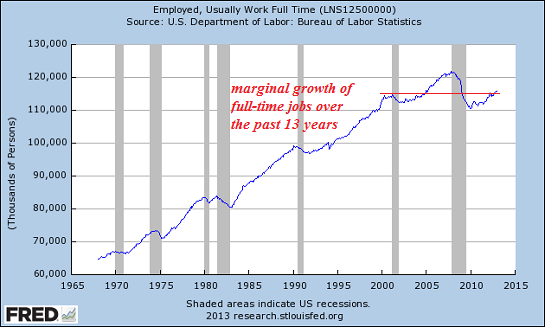
Full-time employment as a percentage of the U.S. population:
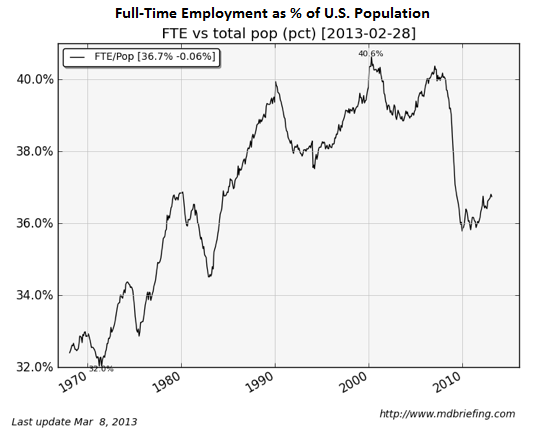
Full-time employment per capita: i.e. employment adjusted for population growth.
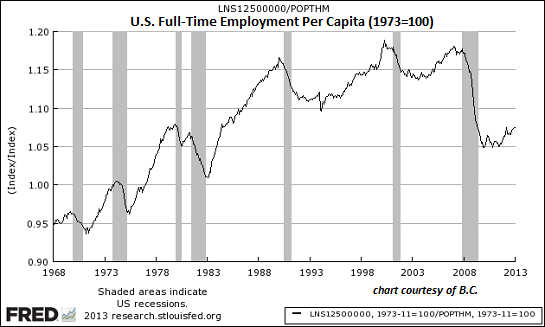
Full-time employment and Social Security beneficiaries: the ratio of full-time workers to Social Security beneficiaries has already fallen to 2-to-1, and the bulk of the Baby Boom has yet to reach retirement age.
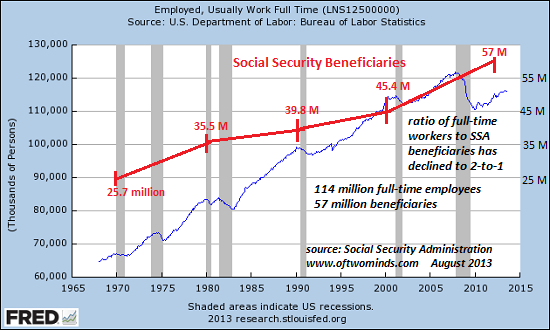
Part-time employment: many of the jobs added over the past four years are part-time jobs that do not generate enough income to support a household or the government. Including these alongside full-time jobs is thus deceptive: 1 in 5 jobs is part-time.
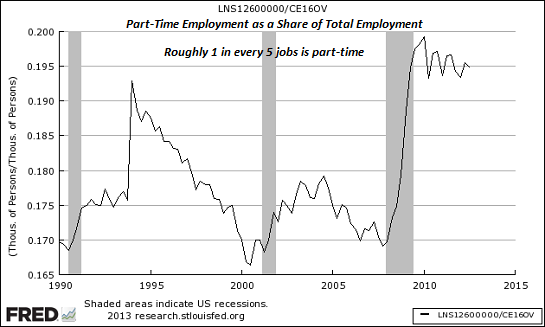
Self-employment: drifting down to new lows as a percentage of non-farm employment.
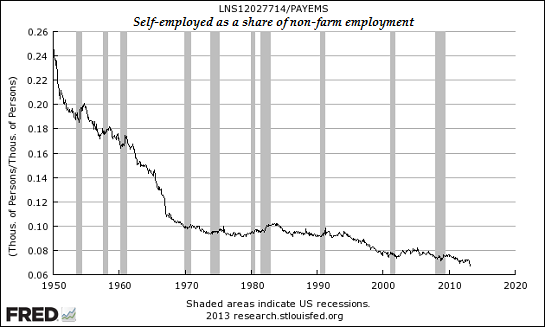
The topping pattern in full-time jobs is obvious, as is the rise of part-time work and the slow decline of self-employment as a meaningful contributor to employment.Any one of these trends could be disputed, but together they make a definitive case that the U.S. has reached Peak Jobs--at least the sort that can support a household.
Posts and email responses will be sporadic in October due to family commitments. Thank you for your understanding.
The Nearly Free University and The Emerging Economy:
The Revolution in Higher Education
Reconnecting higher education, livelihoods and the economy

We must thoroughly understand the twin revolutions now fundamentally changing our world: The true cost of higher education and an economy that seems to re-shape itself minute to minute.
Things are falling apart--that is obvious. But why are they falling apart? The reasons are complex and global. Our economy and society have structural problems that cannot be solved by adding debt to debt. We are becoming poorer, not just from financial over-reach, but from fundamental forces that are not easy to identify. We will cover the five core reasons why things are falling apart:
 1. Debt and financialization
1. Debt and financialization2. Crony capitalism
3. Diminishing returns
4. Centralization
5. Technological, financial and demographic changes in our economy
Complex systems weakened by diminishing returns collapse under their own weight and are replaced by systems that are simpler, faster and affordable. If we cling to the old ways, our system will disintegrate. If we want sustainable prosperity rather than collapse, we must embrace a new model that is Decentralized, Adaptive, Transparent and Accountable (DATA).
We are not powerless. Once we accept responsibility, we become powerful.
Kindle: $9.95 print: $24
| Thank you, Marvin M. ($50), for your stupendously generous contribution to this site-- I am greatly honored by your support and readership. |



























